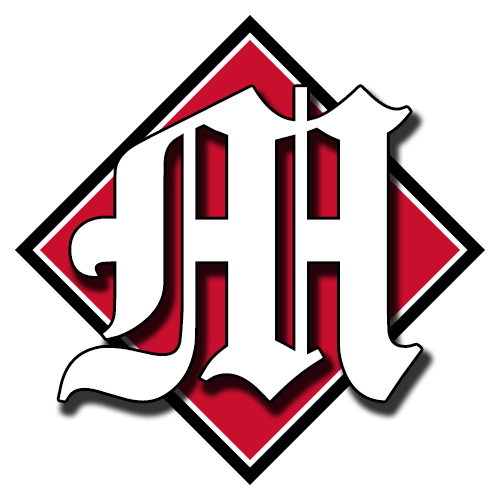Caregivers of former Red Wings defenseman Vladimir Konstantinov, who suffered severe brain injuries in a 1997 limousine crash and requires round-the-clock supervision, fear he could be forced to leave his metro Detroit home and enter a nursing home unless state lawmakers make changes to Michigan’s recently overhauled auto insurance system.
Konstantinov, 54, appeared in a wheelchair Tuesday afternoon and spoke very little during a news conference for his benefit held in the Birmingham office of Arcadia Home Care & Staffing, which provides the retired NHL star with 24/7, in-home care and physical therapy at his condo in West Bloomfield.
No-fault auto insurance has paid for all of Konstantinov’s medical bills and long-term care since the devastating crash, which happened just days after the Red Wings won the 1997 Stanley Cup after a 42-year championship drought.
But Arcadia says it may soon have to cut off Konstantinov — and 29 similarly situated auto accident patients — unless lawmakers act to ease the new price controls on no-fault medical services that took effect last July as part of the 2019 auto insurance overhaul.
Since the cost controls started, the staffing company has shouldered a growing $1.5 million billing deficit by continuing to serve all 30 patients like Konstantinov who pay through no-fault insurance, according to Theresa Ruedisueli, a regional director for Arcadia.
Arcadia has yet to give Konstantinov or the others a discharge date, but it could happen soon unless the Legislature acts, she said.
“We cannot afford to carry the financial burden of continuing their care if this reimbursement is not fixed,” Ruedisueli said. “There is only so much (longer) that support can last. We are publicly traded, and we have people to answer for, too.”
The 30 Arcadia patients are most impacted by the new law’s 45% price cuts on various post-acute care services, such as in-home attendant care. The baseline for the cuts was medical providers’ 2019 rates.
More: Under new Michigan no-fault rules, drivers save, accident victims worry
More: Vladimir Konstantinov and his untold battle after fateful limo crash
Arcadia generally charges no-fault insurance $30 to $35 an hour for its in-home care aides, and the aides are paid $16 to $18, Ruedisueli said. The company has been losing money under the 45% cuts because it continues to pay its aides their regular rates, despite the reduced no-fault reimbursement.
“Arcadia has stood by and is paying more than they’re getting reimbursed for,” said Jim Bellanca, Konstantinov’s attorney and longtime friend. “The change hasn’t affected him yet, but we’re on the brink of losing all of that benefit.
“And the change that will be coming to bear will be Vladdy will probably be warehoused in a nursing home, with unspecialized care, with people who aren’t familiar with his injuries … and he will not be able to secure the specialized care that he needs.”
Konstantinov’s caregivers said they hope lawmakers consider a bill introduced last month by state Rep. Phil Green, R-Millington, that would loosen the price controls by setting reimbursements for post-acute rehab and in-home care at 200% of Medicaid payment rates and 150% of U.S. Department of Veterans Affairs medical service rates.
Supporters of the legislation say 200% of Medicaid rates would represent a level that could sustain providers while preventing profiteering. Medicaid rates often reimburse providers at below the cost of service.
The bill is pending before the House Insurance Committee.
According to Arcardia, its current no-fault reimbursement for auto accidents patients is below Medicaid rates.
“It is an easy fix,” said Barry Cargill, CEO of the Michigan Home Care & Hospice Association. “If there was a vote in the Legislature today, we would see overwhelming passage of that legislation. It’s being held up.”
Konstantinov suffered severe head injuries in the June 13, 1997 limousine crash. The accident happened when the driver, who had a suspended license, fell asleep at the wheel. The vehicle drifted across three lanes of Woodward Avenue in Birmingham and slammed head-on into a tree.
Konstantinov was one of two players in the limo. The team’s masseur, Sergei Mnatsakanov, also was a passenger and was paralyzed from the waist down.
The other player, Slava Fetisov, suffered minor injuries and returned to playing four months later.
Immediate impact
The new no-fault price controls had an immediate impact on home health agencies and other businesses that treat patients with long-term car crash injuries. Some of them had high cost and labor-intensive operations that were calibrated for no-fault’s previously high reimbursements.
Several care providers and residential facilities have since closed. Others dropped longtime patients because the new reimbursements were too low, resulting in those patients entering nursing homes.
The problem is unique to Michigan because, for years, no other state has had a no-fault insurance system with unlimited medical benefits and no price controls. In other states, people catastrophically injured in car accidents often end up in Medicaid-funded nursing homes.
Konstantinov’s care has long been provided for by the Michigan Catastrophic Claims Association, which reimburses auto insurers once the size of an auto accident victim’s claim exceeds a set threshold, currently $600,000.
The per-vehicle, per-year fee that drivers pay to the Michigan Catastrophic Claims Association is currently $86, down from $220 in 2020, or $0 for drivers who chose a no-fault medical coverage level besides unlimited.
As of June 30, there were 17,542 open catastrophic claims, and according to insurance industry data, 6,612 of those claims were people such as Konstantinov receiving long-term care of some form.
Drivers throughout Michigan will start receiving $400 per-vehicle insurance refund checks next month. The refunds, which auto insurers must issue no later than May 9, represent $3 billion of the claims association’s $5 billion surplus, which is largely the result of investment gains plus savings from the price controls. The fund reported a total $27 billion in assets last year.
Contact JC Reindl: 313-378-5460 or jcreindl@freepress.com. Follow him on Twitter @jcreindl. Read more on business and sign up for our business newsletter.
